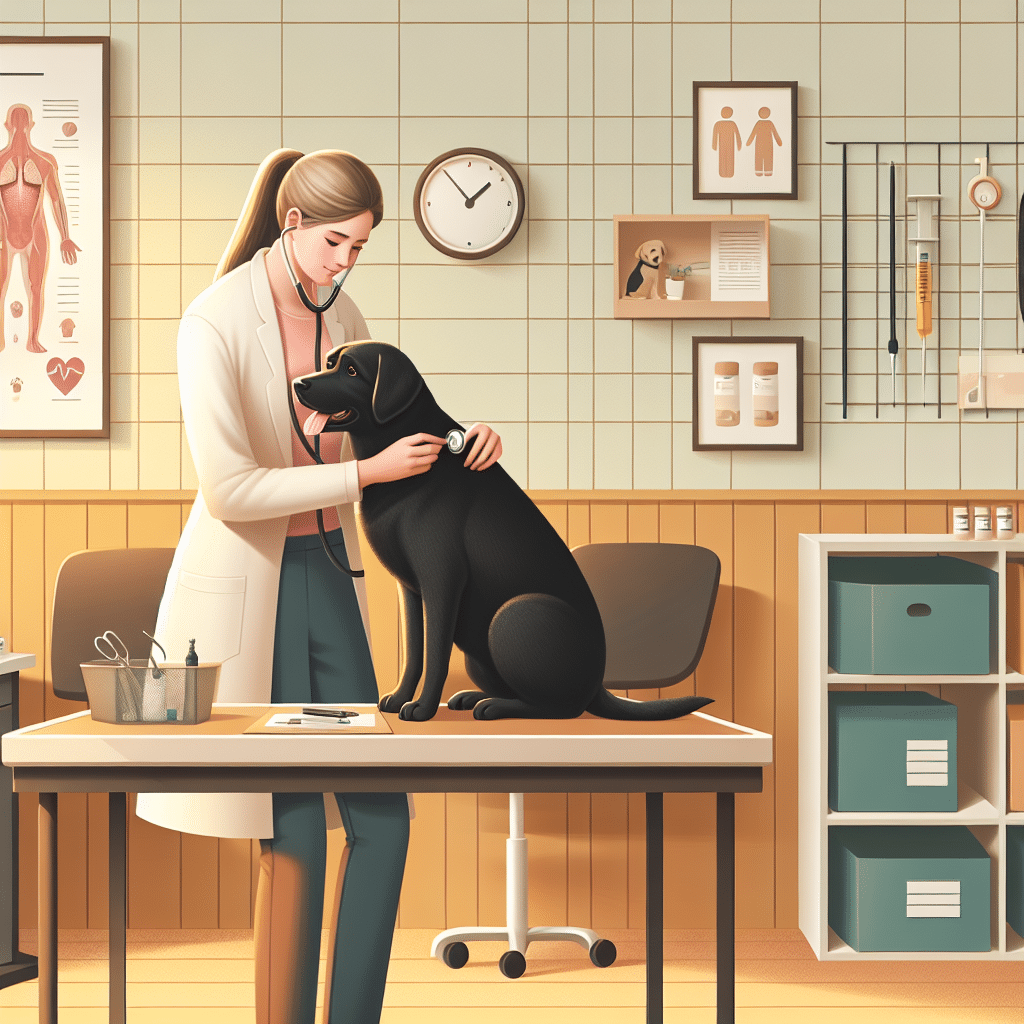
Welcome to the Health & Training of Dogs Self-Guided Lesson for Dog Lovers!
Understanding and Managing Separation Anxiety in Dogs
Welcome to our comprehensive online lesson designed to help you better understand and manage separation anxiety in your beloved canine companion. Separation anxiety is a common issue that many dogs experience when they are left alone, leading to stress, destructive behavior, and other negative consequences.
In this lesson, we will explore the causes of separation anxiety, signs to watch out for in your dog, and effective strategies to help your furry friend cope with being alone. By implementing the solutions provided in this lesson, you can improve your dog's overall well-being and create a more harmonious relationship with your pet.
Whether you are a new dog owner looking for guidance or a seasoned enthusiast wanting to enhance your understanding of dog behavior, this lesson is tailored to meet your needs. Get ready to empower yourself with the knowledge and tools necessary to support your dog's mental and emotional health.
Identifying common health issues in dogs is crucial for managing separation anxiety effectively. Dogs may exhibit symptoms of separation anxiety due to underlying health problems that are causing them distress. By being aware of these common health issues, dog lovers can address any potential medical concerns and help alleviate their dog's anxiety.
Some common health issues that may contribute to separation anxiety in dogs include:
Pain or discomfort: Dogs experiencing pain or discomfort, whether from arthritis, dental issues, or other conditions, may become more anxious when separated from their owners. It's essential to monitor your dog for signs of pain and seek veterinary care if necessary.
Digestive problems: Digestive issues such as stomach upset, diarrhea, or constipation can lead to increased stress and anxiety in dogs. Maintaining a healthy diet and addressing any digestive issues promptly can help manage separation anxiety.
Skin conditions: Dogs with skin allergies, infections, or other skin conditions may exhibit signs of distress when left alone. Regular grooming, proper flea and tick prevention, and addressing any skin problems can improve your dog's overall well-being and reduce separation anxiety.
Respiratory issues: Dogs with respiratory problems, such as allergies, asthma, or respiratory infections, may struggle with anxiety when separated from their owners. Monitoring your dog's breathing and seeking veterinary care for respiratory issues can help alleviate anxiety symptoms.
By being vigilant about your dog's health and addressing any potential underlying medical issues, you can better manage separation anxiety and provide a healthier and happier environment for your beloved pet.
When it comes to managing separation anxiety in dogs, understanding the symptoms and warning signs is crucial. Dogs experiencing separation anxiety may exhibit a range of behaviors that indicate distress and discomfort when left alone. These behaviors can vary in intensity and may include:
- Excessive barking, whining, or howling when left alone
- Destructive behavior, such as chewing furniture, doors, or other objects
- Pacing, restlessness, or attempting to escape confinement
- House soiling, even in house-trained dogs
- Excessive drooling or panting
- Self-injury, such as excessive licking or chewing on their own body
It's important to note that these behaviors can also be indicative of other issues, so it's essential to consult with a veterinarian or a professional dog trainer to properly diagnose separation anxiety. By recognizing these symptoms and warning signs early on, dog lovers can take proactive steps to address their pet's separation anxiety and improve their overall well-being.
One of the essential aspects of managing separation anxiety in dogs is ensuring their overall health and well-being. Preventive care and maintenance play a crucial role in helping your furry friend cope with being alone. Here are some key points to keep in mind:
Regular Exercise: Providing your dog with sufficient physical activity is vital for their mental and physical health. Regular exercise can help reduce anxiety levels and prevent destructive behaviors often associated with separation anxiety.
Balanced Diet: A nutritious diet is essential for maintaining your dog's overall health. Make sure to feed them high-quality food that meets their specific dietary requirements based on their age, size, and activity level.
Mental Stimulation: Keeping your dog mentally stimulated is just as important as physical exercise. Engage them in interactive games, puzzle toys, and training exercises to prevent boredom and anxiety when left alone.
Establish a Routine: Dogs thrive on routine and structure. Create a consistent daily schedule for feeding, exercise, playtime, and rest to help your dog feel secure and less anxious when you are away.
Regular Vet Check-ups: Schedule regular visits to the veterinarian for wellness exams and vaccinations. Your vet can also provide guidance on preventive healthcare measures, such as parasite control and dental care, to ensure your dog remains healthy and happy.
By incorporating these preventive care practices into your dog's daily routine, you can help them maintain good health and build resilience to manage separation anxiety more effectively.
Handling emergencies and first aid for dogs is crucial, especially when dealing with separation anxiety. Here are some essential tips to keep in mind:
Know the signs: Familiarize yourself with the common signs of distress in dogs, such as excessive panting, drooling, pacing, and destructive behavior.
Create a safe space: Ensure your dog's environment is safe and secure to prevent any accidents or injuries when they are feeling anxious or stressed.
Have a first aid kit: Keep a well-stocked first aid kit specifically for your dog, including items like bandages, antiseptic wipes, and tweezers for removing ticks.
Stay calm: In case of an emergency, it's important to stay calm and composed to effectively assess the situation and provide the necessary help for your dog.
Know basic first aid: Learn basic first aid techniques for dogs, such as how to perform CPR and stop bleeding, to be prepared for any emergencies that may arise.
By being proactive and prepared, you can effectively manage separation anxiety in your dog and ensure their safety and well-being in any situation.
If you find that your dog is struggling with separation anxiety, it is essential to consult with a veterinarian as soon as possible. Veterinarians are trained professionals who can provide valuable insights into your dog's behavior and recommend appropriate treatment options.
During your consultation with the veterinarian, be prepared to provide detailed information about your dog's behavior, triggers for anxiety, and any changes in routine or environment that may have occurred. This information will help the veterinarian make an accurate assessment and develop a customized plan to address your dog's separation anxiety.
In some cases, seeking professional help from a certified dog trainer or animal behaviorist may be necessary to effectively manage your dog's separation anxiety. These professionals have the expertise and experience to work with your dog on behavior modification techniques and create a structured training program to help your dog feel more comfortable when left alone.
Wrapping Up: Importance of Managing Separation Anxiety for Reduced Stress
As dog lovers, we all strive to provide the best care for our beloved pets. One crucial aspect of ensuring their well-being is managing separation anxiety, which plays a significant role in reducing stress for our furry companions.
Review and Utilize the Lesson
Take the time to revisit this lesson if you need a refresher on the strategies and tips discussed for addressing separation anxiety in dogs. Remember, a well-informed and proactive approach can make a world of difference in your pet's happiness and overall health.
Explore Further
Make use of the other lessons in this course to deepen your understanding of dog health and training. Each piece of knowledge you gain brings you closer to being the best possible pet parent for your canine friend.
